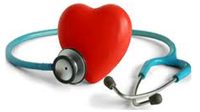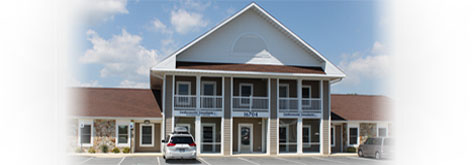Congestive Heart Failure Treatment
Heart failure is a symptom of a weak heart muscle and/or a stiff heart muscle. When you have heart failure, it does not mean your heart has stopped beating. It means that your heart is not squeezing or pumping normally. The amount of blood pumped then decreases and not enough oxygen rich blood is circulated to meet your bodys needs. Simple activity--walking, carrying groceries, or climbing stairs may become difficult. Your symptoms will depend on the severity of your heart failure and how well you take care of yourself. For most patients, heart failure is a chronic problem. Heart failure can get worse if not treated. Following doctors orders and learning about heart failure will help you lead a more comfortable life.
The most common causes of Heart Failure are but not limited to:
- Coronary artery disease - Ischemic heart disease (blocked arteries), or heart attacks (scar or dead muscle)
- Heart muscle disorder - Cardiomyopathy
- High blood pressure - Hypertension
- Heart Valve disease - Rheumatic heart disease, calcified valves, endocarditis, etc.
- Irregular Heart rhythm - Atrial fibrillation, heart block, etc.
What can happen?
The heart does not pump enough blood to meet your bodys needs of food and oxygen.
Because the heart is not working well there is not enough forward blood flow.
When the blood is not moving forward it begins to back up in your veins causing swelling (edema) of legs, hands, abdomen or other parts of the body.
Swelling occurs because the body holds too much fluid.
Fluid can build up in the lungs when there is not good forward movement of the blood flow through the heart.
How is it treated?
Rest
Limit salt intake eat no more than 2 Grams (2000mg) salt daily. Sometimes salt will need to be limited even more depending on individual diagnosis.
Limits fluid intake to 2 quarts a day.
Making healthy lifestyle changes as necessary.
Medications which may include:
Vasodilators which dilate or plump up blood vessels to improve circulation through them.
ACE Inhibitors which help strengthen your heart by lowering blood pressure and relaxing blood vessels.
Diuretics which helps your body let go of fluid.
Digoxin which helps your heart pump better.
Beta-Blockers which block adrenalin and keep the heart rate slower and blood pressure lower.
Your doctor may use a combination of drugs and he will decide which type of medicine is best for you.
What can I do?
Follow your doctors advice
Take your medication as instructed. Taking medication is vital in treating your heart disease. The benefits of the medicine will depend on your compliance. Please refer to the Medication List that has been prepared for you.
Eat a healthful, low salt, low fat diet.
Activity - Even though you will be instructed to rest you will also be instructed to be as active as possible without exceeding your limits.
Gradually increase your home routine to tolerance.
Plan time throughout the day to rest and relax. Learn how to pace yourself--Never push yourself beyond your limits.
Plan your daily activities. Plan for outings or trips by conserving energy before the actual planned event, such as resting more the day before or simply doing less the day or 2 before the event.
Exercise regularly within your capacity--walking, cycling, swimming, low-impact aerobic routines. Being active can actually help you feel better. Pick and chose your activity depending on your capabilities.
Weigh yourself daily and record weights. Take this record to show your doctor on each visit.
You may be asked to limit your fluid intake to 2 quarts each 24 hours. This will require that you measure your fluid intake daily.
What should I watch for?
Symptoms to Report: call our office with problems or concerns 302-645-1233.
Increased fatigue and weakness
Breathing problems especially with simple activity and /or when lying down
Weight gain of 3-5 pounds in 48 hours
Swollen and puffy feet, ankles, legs, fingers, hands, and abdomen
Frequent hacking cough especially when lying down (night time / nap time)
Waking up breathless, gasping for air, having to sit up until breathing settles down
Nausea with abdominal swelling, pain, and tenderness
Dizziness and fainting problems. Remember to change positions slowly. Stand by the bed or chair until you feel steady before moving on.
Any problems with your medicines: rashes, dizziness, light-headedness, inability to function normally. The medication used to improve your hearts function will lower blood pressure. This is good!
Notify your doctor if you develop "the flu", fever, or can t keep food or liquid down. Confusion or inability to think clearly.




